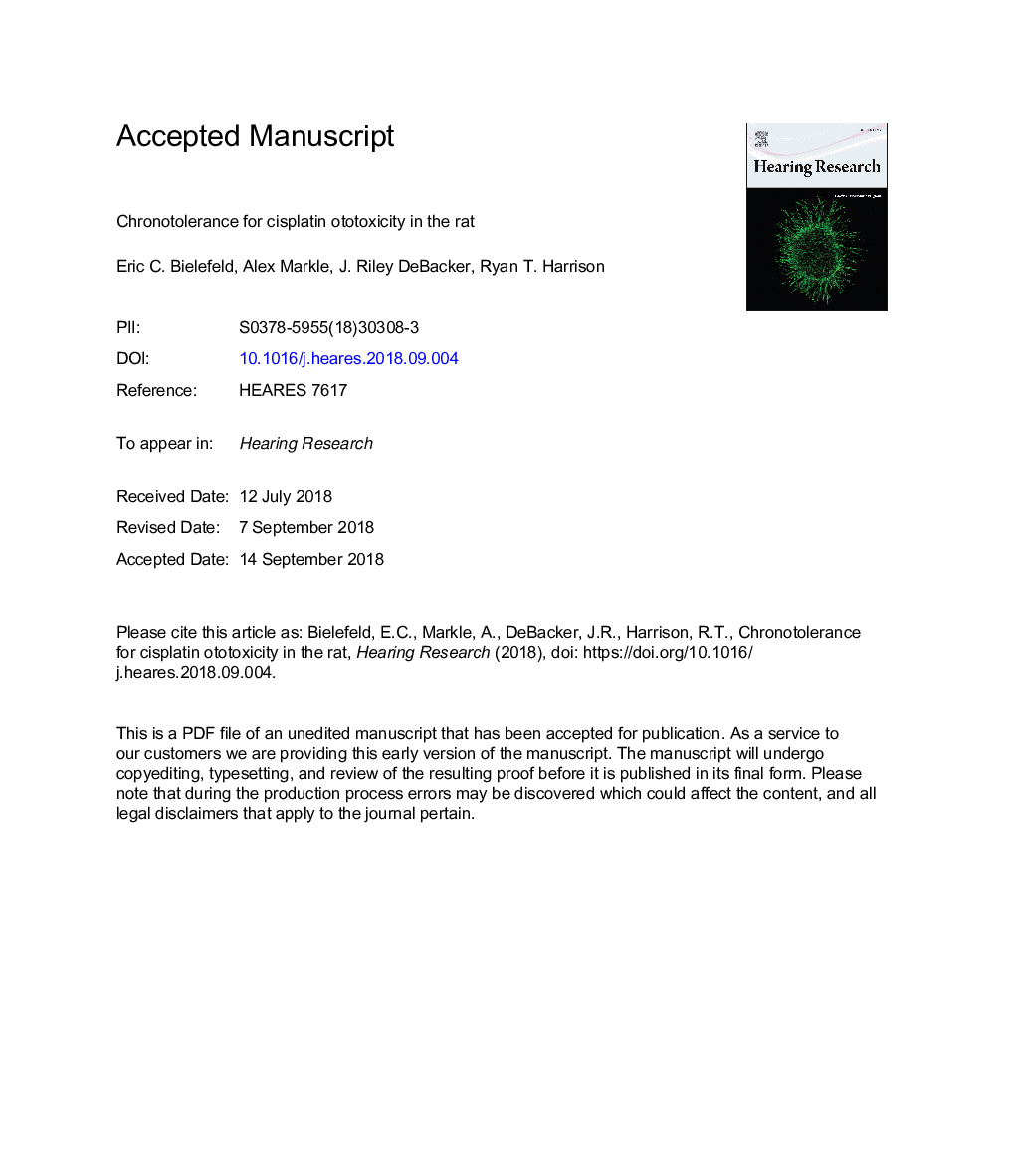| Article ID | Journal | Published Year | Pages | File Type |
|---|---|---|---|---|
| 10223207 | Hearing Research | 2018 | 32 Pages |
Abstract
Cisplatin is a potent chemotherapeutic compound for which ototoxicity is a significant side effect. Cisplatin has shown sensitivity to circadian time, in that cisplatin is most effective as an anti-tumor compound, and least nephrotoxic, when given in the active (dark) period of the light-dark cycle in rodents. The objective of the study was to determine the sensitivity of cisplatin ototoxicity to circadian time. Fifty-seven Fischer 344/NHsd rats were exposed to 12â¯mg/kg cisplatin by intra-peritoneal injection at one of six time points on a 12â¯h light-12â¯h dark cycle: 2, 6, or 10â¯h after light onset or 2, 6, or 10â¯h after light offset. Cochlear injury was evaluated using auditory brainstem response threshold shifts and postmortem outer hair cell counts. All animals experienced threshold shift in the highest frequencies tested (30 and 40â¯kHz). The animals exposed to cisplatin at 6â¯h after light onset (the inactive period) had significantly higher mid-frequency threshold shifts and outer hair cell losses than the groups exposed during the dark hours. The results indicate that cisplatin is less likely to cause ototoxicity in the Fischer 344/NHsd rat when given during the active period. This finding is consistent with the lower nephrotoxicity that has been detected in cisplatin-exposed animals treated during the dark hours, and the magnitude of differences in threshold shifts between the light and dark exposure indicates that circadian timing has a significant impact on susceptibility to cisplatin ototoxicity.
Related Topics
Life Sciences
Neuroscience
Sensory Systems
Authors
Eric C. Bielefeld, Alex Markle, J. Riley DeBacker, Ryan T. Harrison,
